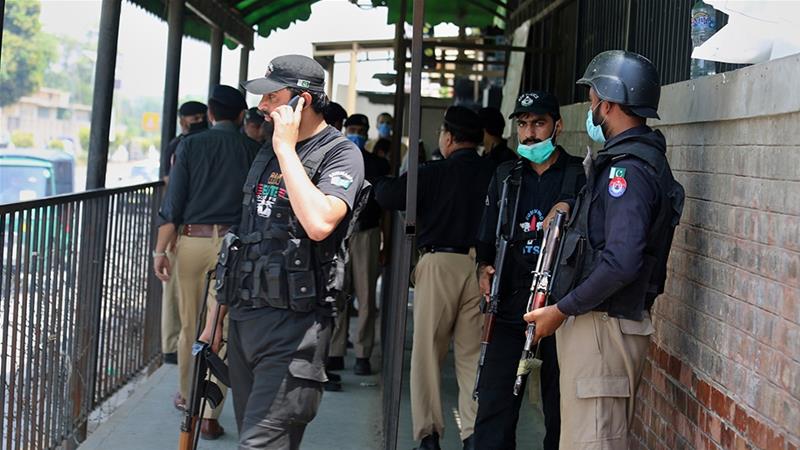
Islamabad, Pakistan - A court in the eastern Pakistani city of Lahore has sentenced a Christian man to death for having committed "blasphemy", his lawyer says, in the latest case of Pakistan's strict religious laws being applied against minorities.
Asif Pervaiz, 37, has been in custody since 2013 when he was accused of having sent "blasphemous" text messages to a former supervisor at work, lawyer Saif-ul-Malook told Al Jazeera.
The court rejected his testimony wherein he denied the charges and sentenced him to death on Tuesday.
"The complainant was a supervisor in a hosiery factory where Asif was working under him," said Malook.
"He denied the allegations and said that this man was trying to get him to convert to Islam."
Speaking in his own defence in court earlier in the trial, Pervaiz claimed the supervisor confronted him after he quit work at the factory, and when he refused to convert he was accused of having sent blasphemous text messages to the man.
Blasphemy laws
Muhammad Saeed Khokher, the complainant in the case, denies wanting to convert Parvaiz, according to his lawyer, Ghulam Mustafa Chaudhry.
"He has taken this defence after the fact, because he had no other clear defence," Chaudhry told Al Jazeera. "That's why he accused him of trying to convert him."
Chaudhry said there were other Christian employees at the factory, but none have accused Khokher of proselytising.
Pakistan's strict blasphemy laws prescribe a mandatory death penalty for the crime of insulting Islam's Prophet Muhammad, and strict penalties for other infractions such as insulting Islam, the holy Quran or certain holy people.
There are currently at least 80 people in prison in Pakistan for the crime of "blasphemy", with at least half of them facing life sentences or the death penalty, according to the United States Commission on International Religious Freedom (USCIRF).
Those accused under the laws are mainly Muslim, in a country where 98 percent of the population follows Islam, but the laws disproportionately target members of minorities such as Christians and Hindus.
Aasia Bibi case
In one of the most high-profile blasphemy cases in the country's history, the Supreme Court ruled in October 2018 that a Christian woman, Aasia Bibi, had been framed in her case and that the laws had inadequate oversight for false accusations.
Those accusations can have deadly consequences. Since 1990, at least 77 people have been killed in connection with blasphemy allegations, according to an Al Jazeera tally.
Those killed have included people accused of blasphemy, their family members, lawyers and judges who have acquitted those accused of the crime. Bibi fled Pakistan in 2019 due to threats against her life.
The latest such murder took place in July when a man accused of blasphemy was shot six times in a courtroom during a hearing in his case.
His murderer was apprehended and was garlanded with roses by far-right supporters during subsequent court appearances.
This month has seen a sharp spike in blasphemy cases being registered in Pakistan, particularly in the most populous province of Punjab. Many of these cases have targeted the country's sizeable Shia Muslim minority, which forms roughly 15 percent of the population.
Since a series of large-scale sit-in protests on the issue of blasphemy in 2017, political parties have increasingly been including messaging on blasphemy in their platforms.
The Tehreek-e-Labbaik Pakistan (TLP) political party, formed by firebrand scholar Khadim Hussain Rizvi ahead of the 2018 polls, campaigned on a platform based on defence of the blasphemy laws.
While it won few seats, it garnered the fourth-highest share of the countrywide popular vote by a single party.



Comments
Post a Comment